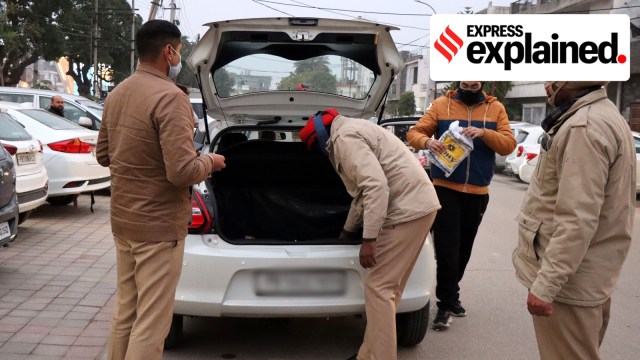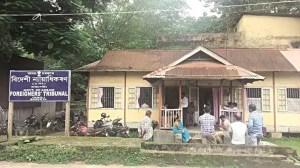
Measures to curb money power
Prior to every election, the EC issues detailed instructions to police, Railways, airports, the Income Tax department, and other enforcement agencies, to keep a strict vigil on the movement of cash, liquor, jewellery, drugs and gifts — anything which could be distributed during polls.
It also appoints expenditure observers for every district, alongside static surveillance teams (SST) and flying squads. The flying squads comprise a Senior Executive Magistrate as the head, a senior police officer, a videographer, and three or four armed police personnel. According to the EC, the teams are to be provided with a dedicated vehicle, a mobile phone, a video camera, and necessary documents required for seizing cash or goods.
Surveillance teams put up checkposts on roads, videographing the entire checking process. Their location is changed frequently to maintain an element of surprise. While checkposts are supposed to be set up from the date of announcement of polls, the final 72 hours before polling will see enhanced enforcement.
What are the rules for carrying cash and other items?
The EC’s efforts are meant to keep an eye on campaign expenditure by candidates, which is capped at Rs 95 lakh per constituency in bigger states, and Rs 75 lakh per constituency in smaller ones. However, this adversely affects citizens as well.
For instance, according to EC instructions, the CISF or police authorities at airports are supposed to “instantaneously report to the Income Tax Department” anyone carrying cash worth more than Rs.10 lakh, or more than 1 kg in bullion. The Income Tax Department then has to “make necessary verification as per the Income Tax Laws and take necessary measures if no satisfactory explanation is given.” This means that cash or bullion can be seized till verification is completed, in order to ensure that it is not related to any political party or candidate.
Story continues below this ad
At check-posts controlled by the surveillance teams, the EC makes it clear that “if cash of more than Rs 10 lakh is found in a vehicle, and there is no suspicion of commission of any crime or linkage to any candidate, agent or party functionary, then the SST shall not seize the cash, and [simply] pass on the information to the Income-Tax authority, for necessary action under Income Tax Laws.”
However, if a vehicle carrying a candidate, or his/her agent or party worker is found with over Rs 50,000 in cash or drugs, liquor, arms, or gift items worth over Rs.10,000, then the cash or other items will be seized. If during checking, there is any suspicion of a crime, the seizure will be done under the Criminal Procedure Code (CrPC) and an FIR will be filed within 24 hours.
When it comes to carrying liquor across state borders, the excise laws of the respective state apply. For instance, some states allow two bottles of sealed liquor to be carried in.
What happens after a seizure?
In case any cash or other items are seized, authorities are meant to return them if they are not related to any candidate or a crime.
Story continues below this ad
“After seizure, the seized amount shall be deposited in such manner as directed by the Court and a copy of seizure of cash, in excess of Rs 10 lacs shall be forwarded to the Income Tax authority, engaged for the purpose,” the EC says.
A district-level committee will look at grievances, “in order to avoid inconvenience to the public and genuine persons”. The Committee, comprising the district election office’s nodal officer for expenditure monitoring, and the district treasury officer, shall suo-motu examine each case of seizure where no FIR/complaint has been filed, or where the seizure is not linked with any candidate, political party or election campaign. Moreover, it shall take immediate steps to return any cash seized, as per SoP given by the EC.








































